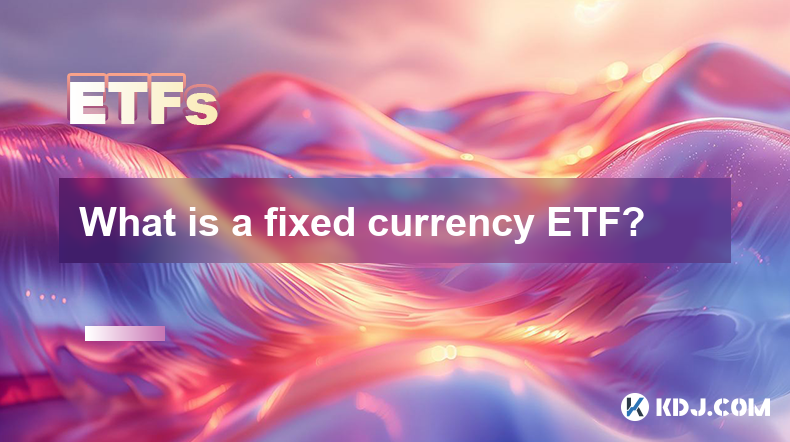-
 Bitcoin
Bitcoin $87,066.3384
2.57% -
 Ethereum
Ethereum $1,575.4052
-0.49% -
 Tether USDt
Tether USDt $1.0000
0.00% -
 XRP
XRP $2.0743
-0.02% -
 BNB
BNB $595.7825
0.83% -
 Solana
Solana $136.4079
-0.38% -
 USDC
USDC $0.9999
-0.01% -
 Dogecoin
Dogecoin $0.1581
2.00% -
 TRON
TRON $0.2461
0.07% -
 Cardano
Cardano $0.6196
0.16% -
 Chainlink
Chainlink $13.0591
-2.01% -
 UNUS SED LEO
UNUS SED LEO $9.1392
-2.02% -
 Avalanche
Avalanche $19.8657
2.37% -
 Stellar
Stellar $0.2514
3.00% -
 Toncoin
Toncoin $2.8936
-3.40% -
 Shiba Inu
Shiba Inu $0.0...01231
-0.36% -
 Sui
Sui $2.1999
4.48% -
 Hedera
Hedera $0.1692
2.08% -
 Bitcoin Cash
Bitcoin Cash $343.9033
2.31% -
 Hyperliquid
Hyperliquid $18.0140
3.65% -
 Polkadot
Polkadot $3.7968
-2.33% -
 Litecoin
Litecoin $77.6904
0.03% -
 Dai
Dai $0.9999
0.00% -
 Bitget Token
Bitget Token $4.4339
0.86% -
 Ethena USDe
Ethena USDe $0.9993
-0.01% -
 Pi
Pi $0.6352
-0.68% -
 Monero
Monero $215.3155
0.42% -
 Uniswap
Uniswap $5.2608
0.42% -
 Pepe
Pepe $0.0...07751
3.06% -
 Aptos
Aptos $4.9488
-1.93%
What is a fixed currency ETF?
Fixed currency ETFs provide a simplified and diversified approach to investing in foreign currencies without the complexities of direct ownership and conversion.
Jan 07, 2025 at 01:25 am

Key Points:
- Fixed currency ETFs provide exposure to a specific fiat currency, such as the U.S. dollar or euro, without the need for direct ownership or conversion.
- They are passively managed funds that track the value of the underlying currency.
- Fixed currency ETFs can be an alternative to traditional currency trading and facilitate more efficient portfolio diversification.
What is a Fixed Currency ETF?
A fixed currency ETF (exchange-traded fund) is an investment vehicle that tracks the value of a specific fiat currency. Unlike traditional currency trading, which involves direct ownership and conversion, fixed currency ETFs provide indirect exposure to the underlying currency through a diversified portfolio of assets that track the currency's value.
Benefits of Fixed Currency ETFs:
- Simplified Access: Fixed currency ETFs offer an accessible way to invest in foreign currencies without the complexities and costs associated with direct currency trading.
- Passive Management: These ETFs are passively managed, meaning they track a predetermined index that mirrors the performance of the underlying currency.
- Diversification: Fixed currency ETFs offer diversification benefits by providing exposure to a basket of assets that track the currency, reducing risk compared to direct currency ownership.
- Hedging Tool: Fixed currency ETFs can be used as a hedging tool to mitigate currency risk and protect against potential exchange rate fluctuations.
How Fixed Currency ETFs Work:
- Underlying Assets: Fixed currency ETFs invest in a portfolio of assets that closely track the value of the targeted currency. These assets may include short-term government bonds, treasury bills, or other debt instruments denominated in the underlying currency.
- Passive Tracking: The ETFs are designed to passively track an index that measures the performance of the underlying currency. This index is typically based on the daily exchange rate of the currency against a benchmark currency, such as the U.S. dollar.
- NAV Calculation: The net asset value (NAV) of a fixed currency ETF is calculated regularly by measuring the aggregate value of its underlying assets. This NAV determines the value of each ETF share.
- Listed on Exchanges: Fixed currency ETFs are listed on stock exchanges and traded like stocks, making them accessible to retail and institutional investors.
Types of Fixed Currency ETFs:
- Major Currency ETFs: These ETFs track the value of major global currencies, such as the U.S. dollar (USD), euro (EUR), and Japanese yen (JPY).
- Emerging Market Currency ETFs: These ETFs provide exposure to currencies of emerging markets, such as the Brazilian real (BRL) and Chinese yuan (CNY).
- Inverse Fixed Currency ETFs: These ETFs provide inverse exposure to a specific currency, meaning they rise in value when the underlying currency depreciates.
FAQs:
Q: What is the difference between a fixed currency ETF and a currency ETF?
A: Fixed currency ETFs track the value of a single fiat currency, while currency ETFs track a basket of multiple currencies. This difference affects the risk profile and investment objectives of each type of ETF.
Q: How can I use fixed currency ETFs in my portfolio?
A: Fixed currency ETFs can be used for various purposes, including currency diversification, hedging, and speculative trading. The specific strategy will depend on an investor's individual objectives and risk tolerance.
Q: Are fixed currency ETFs suitable for all investors?
A: The suitability of fixed currency ETFs depends on an investor's financial situation, investment goals, and risk tolerance. These ETFs carry currency risk and should be carefully considered within a diversified portfolio.
Disclaimer:info@kdj.com
The information provided is not trading advice. kdj.com does not assume any responsibility for any investments made based on the information provided in this article. Cryptocurrencies are highly volatile and it is highly recommended that you invest with caution after thorough research!
If you believe that the content used on this website infringes your copyright, please contact us immediately (info@kdj.com) and we will delete it promptly.
- Coinbase Lists Reserve Rights (RSR), a Dual-Token Stablecoin Platform Aimed at Creating a Collateral-Backed, Self-Regulating Stablecoin Ecosystem
- 2025-04-22 06:40:13
- The Ultimate Guide to Capital Rotation in the Cryptocurrency Market
- 2025-04-22 06:40:13
- Mantra's CEO Keeps His Word – Massive Tokens Burned: Will $OM Price Go From Collapse to Catalyst?
- 2025-04-22 06:35:14
- TRUMP Token Price Soars After Unlocking 40M New Coins
- 2025-04-22 06:35:14
- Avalanche Foundation Launches the Avalanche Card, Allowing Holders to Access Their Crypto Assets Seamlessly Around the World
- 2025-04-22 06:30:12
- The OM Token Crash: A Stark Reminder of Crypto's Wild West Nature
- 2025-04-22 06:30:12
Related knowledge

What role does SEC play in Bitcoin ETF approval?
Feb 25,2025 at 06:48am
Key Points:SEC's Role in Bitcoin ETF Approval ProcessHistorical Efforts to Establish a Bitcoin ETFSEC's Criteria for Bitcoin ETF ApprovalPotential Impact of a Bitcoin ETF on the Cryptocurrency MarketTimeline and Outlook for Bitcoin ETF ApprovalArticle:SEC Play in Bitcoin ETF ApprovalThe United States Securities and Exchange Commission (SEC) plays a crit...

Who is eligible to issue Bitcoin ETFs?
Feb 25,2025 at 11:13am
Key Points:Only regulated financial institutions with the necessary expertise and infrastructure are eligible to issue Bitcoin ETFs.The Securities and Exchange Commission (SEC) has not yet approved any spot Bitcoin ETFs, but has approved several futures-based ETFs.Applicants must meet stringent requirements, including having a strong track record and su...

What impact does Bitcoin ETF have on the market?
Feb 25,2025 at 11:37am
Key Points:Introduction to Bitcoin ETFs and their role in the cryptocurrency marketHistorical development and performance of Bitcoin ETFsPotential benefits of Bitcoin ETFs for investors and the marketRisks and limitations associated with Bitcoin ETFsRegulatory considerations and their impact on Bitcoin ETFsArticle:Introduction to Bitcoin ETFsBitcoin exc...

Which investors are Bitcoin ETFs suitable for?
Feb 27,2025 at 04:01pm
Key Points:Understanding Bitcoin ETFsBenefits of Bitcoin ETFsSuitability of Bitcoin ETFs for Different InvestorsAssessing Risk Tolerance and Investment GoalsConsidering Short-Term and Long-Term StrategiesExamining Tax ImplicationsSeeking Professional AdviceUnderstanding Bitcoin ETFsBitcoin exchange-traded funds (ETFs) are investment vehicles that track ...

What is the administrative expenses of Bitcoin ETFs?
Feb 26,2025 at 12:24am
Key Points:Administrative expenses are a crucial factor to consider when evaluating Bitcoin ETFs.These expenses can significantly impact the performance of the fund and ultimately the investor's returns.Understanding the various components of administrative expenses is essential for informed decision-making.Comparing administrative expenses across diffe...

What are the fees for purchasing Bitcoin ETFs?
Feb 27,2025 at 07:13pm
Key Points:Bitcoin exchange-traded funds (ETFs) are a cost-effective and regulated way to gain exposure to Bitcoin.Fees associated with Bitcoin ETF purchases vary depending on the platform, trading volume, and account type.It is essential to evaluate fee structures carefully to optimize investment returns.Fees Associated with Purchasing Bitcoin ETFs1. B...

What role does SEC play in Bitcoin ETF approval?
Feb 25,2025 at 06:48am
Key Points:SEC's Role in Bitcoin ETF Approval ProcessHistorical Efforts to Establish a Bitcoin ETFSEC's Criteria for Bitcoin ETF ApprovalPotential Impact of a Bitcoin ETF on the Cryptocurrency MarketTimeline and Outlook for Bitcoin ETF ApprovalArticle:SEC Play in Bitcoin ETF ApprovalThe United States Securities and Exchange Commission (SEC) plays a crit...

Who is eligible to issue Bitcoin ETFs?
Feb 25,2025 at 11:13am
Key Points:Only regulated financial institutions with the necessary expertise and infrastructure are eligible to issue Bitcoin ETFs.The Securities and Exchange Commission (SEC) has not yet approved any spot Bitcoin ETFs, but has approved several futures-based ETFs.Applicants must meet stringent requirements, including having a strong track record and su...

What impact does Bitcoin ETF have on the market?
Feb 25,2025 at 11:37am
Key Points:Introduction to Bitcoin ETFs and their role in the cryptocurrency marketHistorical development and performance of Bitcoin ETFsPotential benefits of Bitcoin ETFs for investors and the marketRisks and limitations associated with Bitcoin ETFsRegulatory considerations and their impact on Bitcoin ETFsArticle:Introduction to Bitcoin ETFsBitcoin exc...

Which investors are Bitcoin ETFs suitable for?
Feb 27,2025 at 04:01pm
Key Points:Understanding Bitcoin ETFsBenefits of Bitcoin ETFsSuitability of Bitcoin ETFs for Different InvestorsAssessing Risk Tolerance and Investment GoalsConsidering Short-Term and Long-Term StrategiesExamining Tax ImplicationsSeeking Professional AdviceUnderstanding Bitcoin ETFsBitcoin exchange-traded funds (ETFs) are investment vehicles that track ...

What is the administrative expenses of Bitcoin ETFs?
Feb 26,2025 at 12:24am
Key Points:Administrative expenses are a crucial factor to consider when evaluating Bitcoin ETFs.These expenses can significantly impact the performance of the fund and ultimately the investor's returns.Understanding the various components of administrative expenses is essential for informed decision-making.Comparing administrative expenses across diffe...

What are the fees for purchasing Bitcoin ETFs?
Feb 27,2025 at 07:13pm
Key Points:Bitcoin exchange-traded funds (ETFs) are a cost-effective and regulated way to gain exposure to Bitcoin.Fees associated with Bitcoin ETF purchases vary depending on the platform, trading volume, and account type.It is essential to evaluate fee structures carefully to optimize investment returns.Fees Associated with Purchasing Bitcoin ETFs1. B...
See all articles






















































































